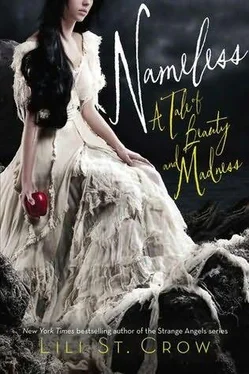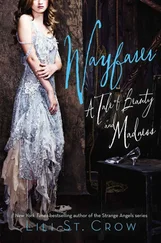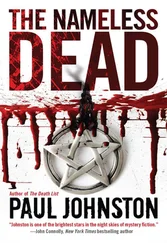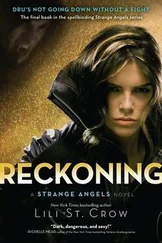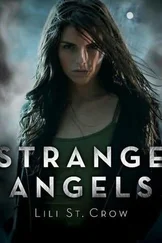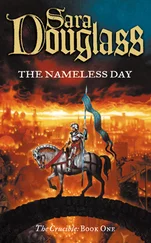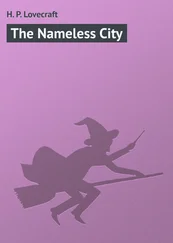She leaned back in her chair, tilting her head.
White walls, silky blond ashwood furniture, thin gauzy white curtains under the thicker cream-brocade ones. The carpet was cream instead of snow. It was like the surface of an egg, and Marya had moaned about putting a child in such a room. But Cami’s disorderliness had been entirely confined to the kitchen and the playroom on the first floor, with its bright primary colors, blocks and toys and every variety of messmaking a little girl could want. Wherever she’d been before Papa found her, she had learned not to mar a blank white surface.
A flash of noise filled her head, and she smelled fresh-cut apples. Maybe Marya was baking and Potential, or just the heating duct, was carrying the aroma up here. Cami pushed away from the Babbage, wandered to the wide south-facing window. Her schoolbag was a dimple of darkness on the bed and the closet was ajar, showing clean Juno uniforms, white shirts, sweaters. She’d draped a long gauzy blue scarf—originally bought for Ellie, but torn now—over the full-length mirror, and she avoided looking through the gauze with the ease of long habit.
Mirrors weren’t quite . . . safe. For one thing, Potential behaved a little oddly around any reflective surface. They were called soulcatchers for a reason , Ellie had remarked once. There’s all sorts of stories. Didn’t you know?
Cami just didn’t like them, that was all. Meeting her own eyes was never a comfortable experience, and sometimes she wondered that Nico and her friends had such an easy time with it.
The window seat was white watered silk, and she braced a knee on it, her breath touching the glass with flowering mist. Below, some of the garden boys were working at the margins of the pond and the rose garden, in the hedge maze dewed with rain. Even in the cold months there was plenty for them to do. Nico didn’t even notice them, the way he didn’t notice the army of maids Marya fussed at to keep the whole house shining.
That’s the difference. He can’t see, I can’t look away .
A sharp unpleasant shudder raced down her back with small prickling feet. One of the garden boys had messy black hair. He wore a white T-shirt even in the chill, steam lifting from his skin as he worked at trimming a hedge with what looked like a giant pair of scissors. He tossed his hair back with a flick of his head, a habitual movement, and Cami recoiled as if scalded. She was on the third floor; they couldn’t see up here in the afternoon, even with the golden electric light shining behind her.
Here she was, barefoot in a pair of jeans that probably cost more than the garden boy made in a week, her pale-pink long-sleeved silk T-shirt barely meeting Ruby’s standards of fashionable—expensive, yes, but not nearly eye-catching enough—but also probably worth more than a day’s wages for him. He’d be sent to college, sure, and maybe end up a kolkhoz smallcharmer or low-level industrial tech.
But right now he was out in the rain, while she was warm, and dry, and moaning about homework. Not to mention looking forward to a party and presents and all the accoutrements of a cushioned life on the Hill.
Why would he say anything to her? Some guys thought the scars made her easy, or that she could introduce them to Family. And all the Family boys were never good enough for Nico’s approval. I know what they’re thinking , he would say darkly, and scowl. Asking just how he knew what they were thinking was guaranteed to make him stamp and be difficult. And God forbid she actually asked what exactly he thought they were thinking.
She kept breathing on the glass. Maybe a pattern would show itself in the condensation, something that would solve the problem.
What problem?
Her fingertip rested on the glass. It wasn’t quite a star, she decided. Star-shaped, but not a star. And there were little things, like seeds. She traced it, rapt concentration taking over as her finger followed an invisible thread. The window-glass shivered.
Below, in the hedge maze, a dark head paused. Tor looked up, and black eyes flashed.
Cami snatched her hand back, guiltily. She ducked as if he could see her, three stories above in her eggshell bower. The vapor on the window vanished, leaving the pattern unfinished. What had she been thinking of?
The design on his necklace. A star. Only not a star.
Cami slid off the window seat. Her legs were trembling slightly. For some reason, the image of a round, juicy, ripe red apple had filled her head. Was Marya baking? It was silly, but this particular apple loosened her knees and made the rest of her cold all over, as if she was outside in the rain too.
Not rain. Snow. Lots of snow. Her wrists ached, the old scars twinging.
She shook her head. There was a soft respectful tap at the door. “Miss Cami?” It was a servant, a cheerful brunette girl who was often in the hallways dusting in a black uniform and a starched white cap. “Miss Cami, Sir is asking for you.”
Cami let out a long shaky breath. Papa was done with Nico and Stevens. It was time to go comb his hair and talk to him. She could talk to him about Ellie and Ruby, maybe. That was a safe subject.
Southking Street, Torin Beale, and apples were definitely not safe. Who could she tell? What did she have to talk about, other than a persistent feeling of cold sinking dread?
Her hand was on the colorless crystal doorknob. Something splatted against her window.
Cami jumped, but there was nothing. Not even a mark on the rain-soaked glass.
“Miss Cami?” Another soft tap.
“Y-yes.” Her throat was dry. Her head ached, suddenly, and her wrists gave another flare of pain, as if sharp metal was tightening around them. She managed to twist the knob and summoned up a pale smile for the worried-looking maid. “Th-thank y-you. Y-Y-Y-Yol-landa, right?”
The brunette beamed, her round face splitting with delight. “Yesmum. Thank you.” Blushing fiercely, she retreated, and Cami hurried in her wake, padding barefoot and trembling toward the Red Room and an old man’s labored breathing.
THE BIG, SOFT FINGERTIPS ARE AT MY THROAT. LONG broad hands, the fingers slightly swollen and manicured, and Her face is a white moon with golden hair fountaining over it. She traces my windpipe, the thin skin and ridges of cartilage underneath. The buzzing in my head is full of that funny smell—apples and heavy incense, a drugging smoke that makes my entire body a slow, lumbering mass. I am so small, and I am being spread out, too thin, butter scraped over too much bread. That cannot be right, for I am curled forward, my head on Her pillow, our hair mingling as She settles next to me. Dust rises, each speck of it glowing with Her presence, and under the drugging incense is a hint of sharpish rot.
But I do not care. It is soft here, but so cold. She is the only heat, and it is a chill that burns.
This one’s heart, She whispers, Her red lips shaping the words so slowly. You love Me, don’t you? My Nameless.
Oh, I do. I cannot help myself. We are wound together, Her palm against my tiny chest, everything in me rising to meet Her. She is gravity, She is dim light and life and love, and I make small piping sounds as She caresses me. This pleases Her, and Her nails scrape lightly, sliding through layers of pinhole-eaten velvet brought from Above. Only the big ones go Above, the littles are not allowed. The bigs bring back food and cloth, shinies to please Her and refuse for the littles to eat after the dogs are done.
Always after the dogs are done.
Sometimes, often enough, there is a new big one, to shave and to bring to Her for the oblivion She promises. A refugee from Above, where everything is too bright, too loud, too sharp, too deadly.
Читать дальше
